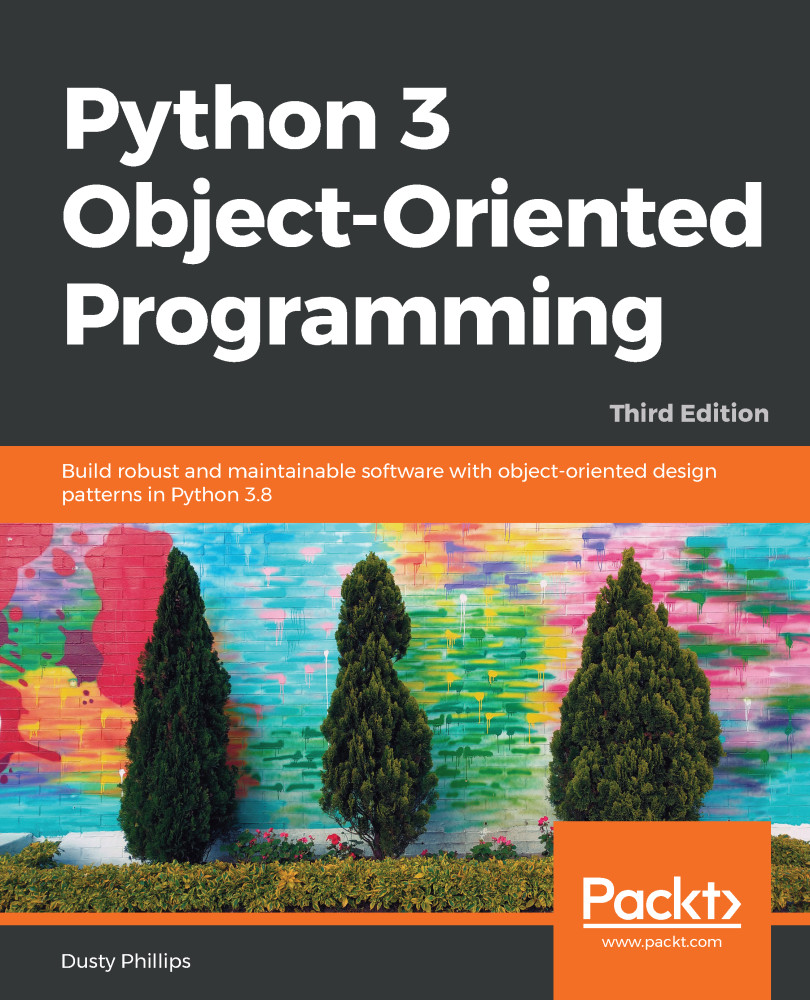While duck typing is useful, it is not always easy to tell in advance if a class is going to fulfill the protocol you require. Therefore, Python introduced the idea of abstract base classes (ABCs). Abstract base classes define a set of methods and properties that a class must implement in order to be considered a duck-type instance of that class. The class can extend the abstract base class itself in order to be used as an instance of that class, but it must supply all the appropriate methods.
In practice, it's rarely necessary to create new abstract base classes, but we may find occasions to implement instances of existing ABCs. We'll cover implementing ABCs first, and then briefly see how to create your own, should you ever need to.


































































